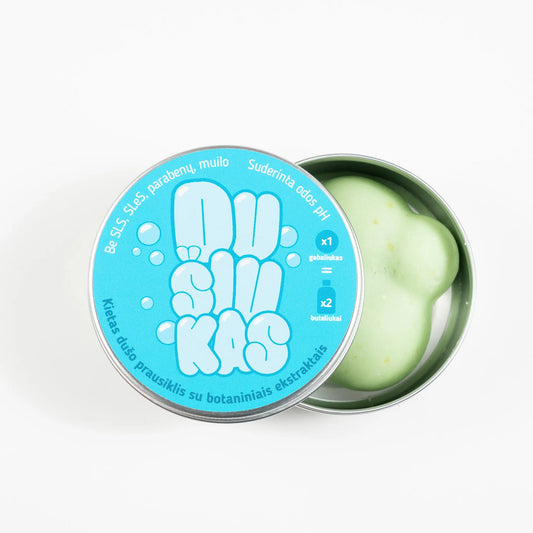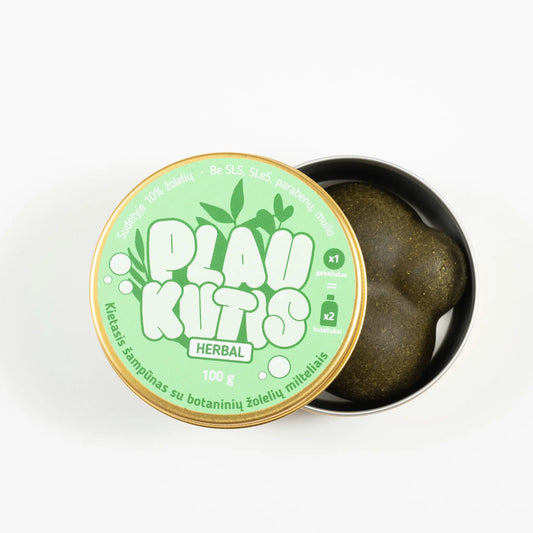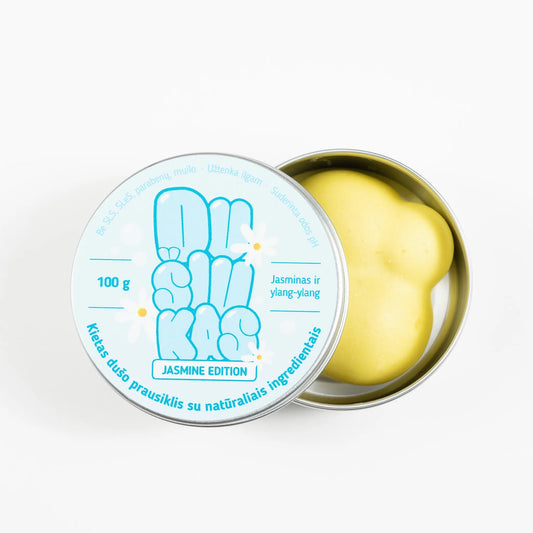Selenium is one of those nutrients that often goes unnoticed, but it plays a big role in maintaining the health of your hair . As an essential antioxidant, selenium helps protect your scalp and hair follicles from oxidative stress caused by free radicals. These free radicals can damage hair cells, making it harder for your hair to grow strong and healthy. In fact, studies show that oxidative stress can increase hair loss by up to 20-30% .
Additionally, selenium is also involved in the formation of hair proteins and helps maintain hair strength . If your hair has been feeling weak, thinning, or brittle lately, a selenium deficiency may be part of the problem . Let's take a look at how selenium works and how you can ensure you're getting enough of it for healthy hair.

How selenium promotes healthy hair growth
Selenium plays a critical role in regulating thyroid hormones , which directly affect hair growth. Your thyroid is a butterfly-shaped gland in your neck that controls many of your body’s processes, including hair growth. If your thyroid isn’t working properly, it can lead to thinning and brittle hair . Selenium helps your thyroid function properly , which in turn supports healthy hair growth. Studies have shown that selenium deficiency can contribute to thyroid dysfunction , causing hair problems such as increased hair loss and slower growth.
Did you know that about 20 million Americans suffer from some form of thyroid disease , and women are five to eight times more likely to have thyroid problems than men? This makes selenium even more important for women's health , as it supports the thyroid gland and thus promotes hair growth.

Another important function of selenium is its role in cell regeneration . Your hair follicles are constantly regenerating cells to keep your hair growing. Selenium helps in this process by supporting the production of new cells. It also protects against scalp infections, including dandruff , which is often caused by an overgrowth of fungus. Selenium has antifungal properties , which help keep your scalp healthy and free of infections, creating a better environment for your hair to grow. In fact, 60% of dandruff cases are related to fungal infections , and selenium has been shown to significantly reduce symptoms.
Did you know that selenium also helps protect your scalp from environmental stressors? Exposure to pollution, UV rays, and harsh chemicals can weaken your hair over time. Selenium’s antioxidant properties counteract these damaging effects , helping to keep your scalp healthy and your hair strong. According to a study by Environmental Science and Pollution Research , exposure to pollution can increase hair loss rates by 15-20% due to inflammation and oxidative stress.

Selenium and thyroid regulation for hair growth
Thyroid hormones are like the control center of your body , and when they are out of balance, your hair often suffers. Hypothyroidism (an underactive thyroid) can lead to dry, brittle hair, while hyperthyroidism (an overactive thyroid) can cause thinning hair. Selenium helps convert inactive thyroxine (T4) into its active form, triiodothyronine (T3) , which is essential for proper thyroid function.
Studies have found that people with thyroid-related hair loss often have lower selenium levels than those without thyroid problems. For example, a study published in the Journal of Clinical Endocrinology and Metabolism found that 30% of people with hypothyroidism had selenium deficiencies , which correlated with increased hair thinning and brittleness. Additionally, researchers noted that taking selenium supplements has been shown to improve thyroid function in people with borderline low levels, which may help reduce hair loss related to thyroid disorders. A 2017 study found that participants who took selenium supplements experienced a 25% reduction in hair loss over six months .

The role of selenium in preventing scalp infections
Another significant way that selenium promotes healthy hair growth is by preventing scalp infections . The scalp is home to a variety of microorganisms, including fungi, and their overgrowth can lead to conditions such as seborrheic dermatitis, which is often called dandruff. Selenium’s antifungal properties help control these microorganisms , reducing the likelihood of scalp problems that can affect hair growth.
Selenium sulfide is often found in anti-dandruff shampoos for this very reason. It helps fight the fungal infections that cause dandruff , making it easier for your scalp to maintain a healthy balance. By keeping dandruff at bay , selenium creates a healthier environment for hair follicles, which ultimately supports stronger, thicker hair. In fact, according to a study published in the Journal of Dermatological Treatment , shampoos containing selenium sulfide were shown to reduce dandruff symptoms in 87% of users after just a few weeks of use.

Selenium deficiency and hair loss
Selenium deficiency can have a big impact on your hair health . Symptoms of selenium deficiency include thinning hair, brittle hair, and weak hair roots . If your body doesn't get enough selenium, your hair follicles may not be able to produce strong, healthy hair. The result? Increased hair loss, slower hair growth, and in some cases, alopecia (a condition that causes hair loss).
One reason why selenium deficiency affects hair so badly is that it disrupts the hair growth cycle . Normally, your hair goes through three stages: the anagen phase (growth phase), the catagen phase (transition phase), and the telogen phase (resting phase). When selenium levels are low, hair can enter the telogen phase prematurely , leading to increased hair loss and less regrowth. A study in the Journal of Trace Elements in Medicine and Biology found that individuals with low selenium levels experienced 25% more hair loss compared to those with normal selenium levels.

Selenium also plays a role in maintaining the elasticity of your hair . Without adequate selenium, hair can become more prone to breakage. That’s why it’s so important to address selenium deficiency early to prevent problems with thinning hair and weak strands. A 2018 study published in Biological Trace Element Research found that selenium supplements in individuals with a deficiency led to a 40% improvement in hair strength and reduced breakage after four months .
Did you know that selenium deficiency is more common in certain parts of the world due to low levels of selenium in the soil? Regions like China, New Zealand, and parts of Europe have lower levels of selenium in their soil, making it harder for people to get enough of it through diet alone. In some parts of China , selenium deficiency is linked to Keshan disease , which affects the heart but also has symptoms like hair loss and brittle nails .
How to get enough selenium for hair health
The good news is that getting enough selenium through diet and, if necessary, supplements is relatively easy . Here are some of the best ways to boost your selenium levels for healthy hair growth:
- Eat selenium-rich foods: One of the best sources of selenium is Brazil nuts . Just one or two Brazil nuts a day can provide all the selenium you need . Other good sources include fish (like tuna and salmon), eggs, whole grains, and poultry. Did you know that one Brazil nut can contain up to 90 micrograms of selenium? That's more than the recommended daily allowance for adults, which is 55 micrograms !

- Consider selenium supplements: If you have trouble getting enough selenium from food alone, a supplement may be helpful. Selenium supplements come in a variety of forms , including selenium yeast and sodium selenite. Most people need about 55-70 micrograms of selenium per day , but it’s important not to overdose. Too much selenium can cause side effects , such as nausea, fatigue, and in severe cases, selenosis (selenium toxicity). Always talk to your healthcare professional before taking any new supplements .
- Balance your diet: Selenium works well with other nutrients . For example, combining selenium with vitamin E can enhance its antioxidant effects . Eating a balanced diet with plenty of fruits, vegetables, and healthy fats can help you maximize your selenium intake. A 2009 study in Antioxidants & Redox Signaling found that selenium and vitamin E work synergistically, reducing oxidative stress by 40% more than either nutrient alone .
Did you know that selenium levels in soil vary depending on where your food is grown? This means that the selenium content of foods like grains and vegetables can vary greatly depending on the region . In some parts of the world, low selenium levels in soil contribute to higher rates of deficiency.

Myth busting: Interesting facts about selenium and hair health
- Myth 1: Selenium supplements guarantee hair growth - While selenium is important for hair health, supplements are not a miracle cure . If your hair loss is caused by genetics or other health conditions, selenium alone will not solve the problem .
- Myth 2: More selenium means better hair - Too much selenium can actually damage your hair . Too much selenium intake can lead to hair loss and brittle nails . It's important to maintain a balance.
- Fact 1: Selenium is essential for thyroid health - Your thyroid needs selenium to function properly , and a healthy thyroid is key to strong, growing hair .
- Fact 2: Selenium deficiency is rare but has a big impact - Selenium deficiency affects less than 1% of the population in developed countries , but when it occurs, it can significantly affect hair health .
- Fact 3: Selenium can fight dandruff - Selenium sulfide is a common ingredient in anti-dandruff shampoos due to its ability to fight the fungus that causes dandruff.
- Fact 4: Selenium helps protect against UV damage - Selenium's antioxidant properties help protect hair from UV damage caused by the sun. This can protect your hair from drying out and becoming brittle over time.
- Myth 3: Selenium deficiency only affects hair - While hair loss is a common symptom, selenium deficiency can also affect immune function, muscle weakness, and cognitive health .

Practical tips for maintaining optimal selenium levels
- Eat Brazil nuts regularly: Just one or two Brazil nuts a day can provide your daily dose of selenium . It's an easy, delicious way to keep your levels up.
- Use an anti-dandruff shampoo with selenium sulfide: If you struggle with dandruff, consider using a shampoo that contains selenium sulfide to help maintain a healthy scalp.
- Avoid taking too much selenium: Stick to the recommended daily allowance of 55-70 micrograms . More is not always better, and too much selenium can lead to toxicity .
- Combine selenium with vitamin E: Vitamin E can enhance the antioxidant effects of selenium , so include foods like almonds and sunflower seeds in your diet.
- Check your food source: If you rely on plant-based sources of selenium, try to find out where your food is grown. Some regions have lower levels of selenium in the soil, which can affect the selenium content of your food.

FAQs about selenium and hair health
- Can selenium deficiency cause permanent hair loss? No, in most cases, hair loss due to selenium deficiency is reversible . Once selenium levels are restored, hair usually begins to grow back.
- How much selenium do I need for healthy hair? The recommended daily allowance for adults is 55 micrograms of selenium . This amount can usually be obtained through a balanced diet.
- Are selenium supplements safe? Yes, as long as they are taken in the right dosage . Always consult a healthcare professional before taking any supplement to avoid selenium toxicity.
- What are the signs of selenium deficiency? Common signs include thinning hair, brittle nails, fatigue, and weakened immunity . If you suspect you may be deficient in selenium, it is best to get tested by a healthcare professional.
- Can too much selenium cause hair loss? Yes, excessive selenium intake can cause hair loss and other symptoms such as nausea and fatigue. Stick to the recommended dosage to avoid problems.

Conclusion: How selenium contributes to healthy hair
Selenium is essential for healthy hair growth and strength. It supports the thyroid gland, aids in cell regeneration, and protects against scalp infections —all of which are essential for healthy hair. Getting enough selenium through your diet or supplements can help prevent hair thinning and other scalp problems , helping to maintain strong, beautiful hair.













